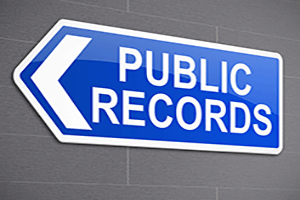Alabama Public Records Search
Public records are the cornerstone in maintaining transparency and accountability in any government agency. In Alabama, as in other states, public records are important for various utilities, including research, legal proceedings, and personal investigations. This article explores into the different types of public records available, the methods for accessing these records, and the laws governing public access to information.
Types of Public Records in Alabama
Public records include a wide range of documents and information kept by government agencies. These can be accessed through the respective government websites, or through various third party resources. Some of the most common types of these records include:
1). Vital Records: These include birth certificates, death certificates, marriage licenses, and divorce decrees. These records are important for countless legal and personal matters. These records are available through the state's Department of Public Health - Vital Records.
2). Court Records: Alabama’s court records cover civil cases, criminal cases, and family court cases. These documents consist of case files, dockets, judgments, and court orders, providing comprehensive details about legal proceedings.
3). Property Records: These records contain data about property ownership, transfers, mortgages, liens, and tax assessments. Property records are essential for real estate dealings and legal disputes involving property.
4). Criminal Records: Criminal records detail an individual's criminal history, including arrests, charges, convictions, and incarcerations. These records are vital for background checks and legal investigations.
5). Driving Records: The Department of Revenue handles most motor vehicle and driver's license records. You can lookup a person's driver history, driving record points, traffic citations and DUIs. You can also run a driver history report through the ALEA.
6). Business Records: Alabama sustains records of businesses registered in the state, including incorporation documents, annual reports, and licenses. These records can be helpful for business research and verification.
7). Government Records: These include meeting minutes, agendas, budgets, and reports from several government agencies. They offer insight into the workings of state and local governments.
How to Search Alabama Public Records
Running a public records search can be done through several methods, depending on your intent of usage, some can be used for official purposes while other resources are intended for research purposes only. Here are some of the options that are publicly available:
1). Online Databases: Many Alabama public records are available online through government websites. For instance, the Alabama Department of Public Health provides admission to vital records, while the Alabama Judicial System offers online access to court records.
2). County Clerk’s Office: For records not obtainable online, people can visit the county clerk’s office where the records are kept. County clerks typically hold property records, marriage licenses, and other local documents.
3). State Archives: The Alabama Department of Archives and History preserves historical public records, including government documents, photographs, and maps. Researchers can access these records in person or through online catalogues.
4). Third-Party Services: Numerous third-party services offer access to Alabama public records for a fee. These services collect records from many sources, making it easier to conduct comprehensive searches.
5). Public Libraries: Many public libraries provide access to local and state public records, every so often through special collections or online databases.
Alabama Public Record Laws
Alabama's public record laws make certain that government records are available to the public. This essentially creates transparency and accountability within the various state, county and federal agencies.. Key components of state public record laws include:
1). Alabama Open Records Act (Ala. Code § 36-12-40): This act was established to guarantee public access to government collected information, with certain exceptions. The law applies to records maintained by state, county, and municipal agencies.
2). Exemptions to Disclosure: Certain records are exempt from public access under this Act. These exemptions include records related to ongoing investigations, protecting personal privacy, national security, and some proprietary business information.
3). Request Procedures: Individuals looking for access to public records must submit a request to the suitable government agency. The request should be exact, describing the records required and the purpose of the request. Agencies are vital to respond within a practical time frame.
4). Fees: Government agencies may charge fees for copying and processing public records requests. These fees must be reasonable and cannot be used to dishearten public access.
5). Legal Recourse: If a public records request is denied, entities have the right to seek judicial review. Courts can force government agencies to release records if the denial is deemed unlawful.
How Do I Lookup My Public Records in Alabama?
You can either go to either government agency and file a public records request, which is very time consuming. A much easier way to do this is to use a public records website. With a simple name search you can retrieve all of your public records in one spot. This is the most convenient way to run this type of search.


